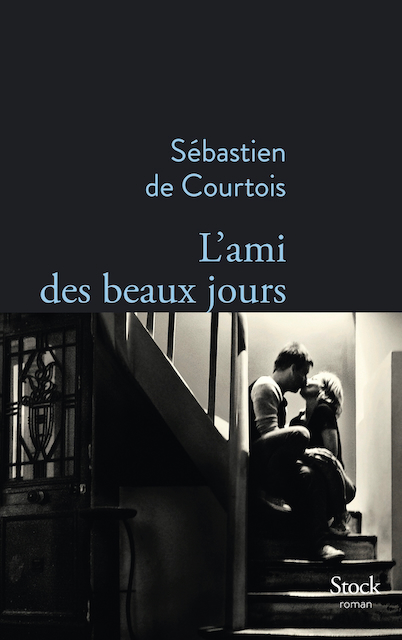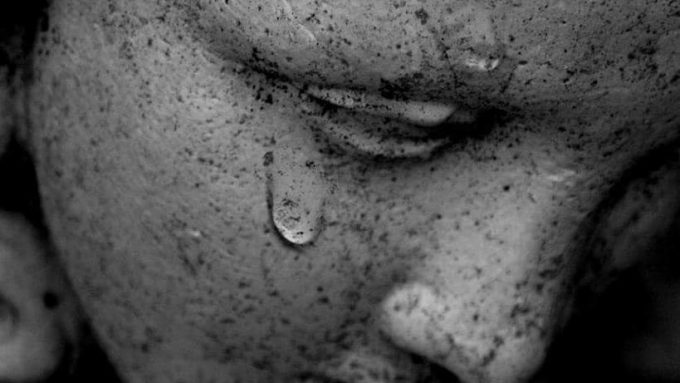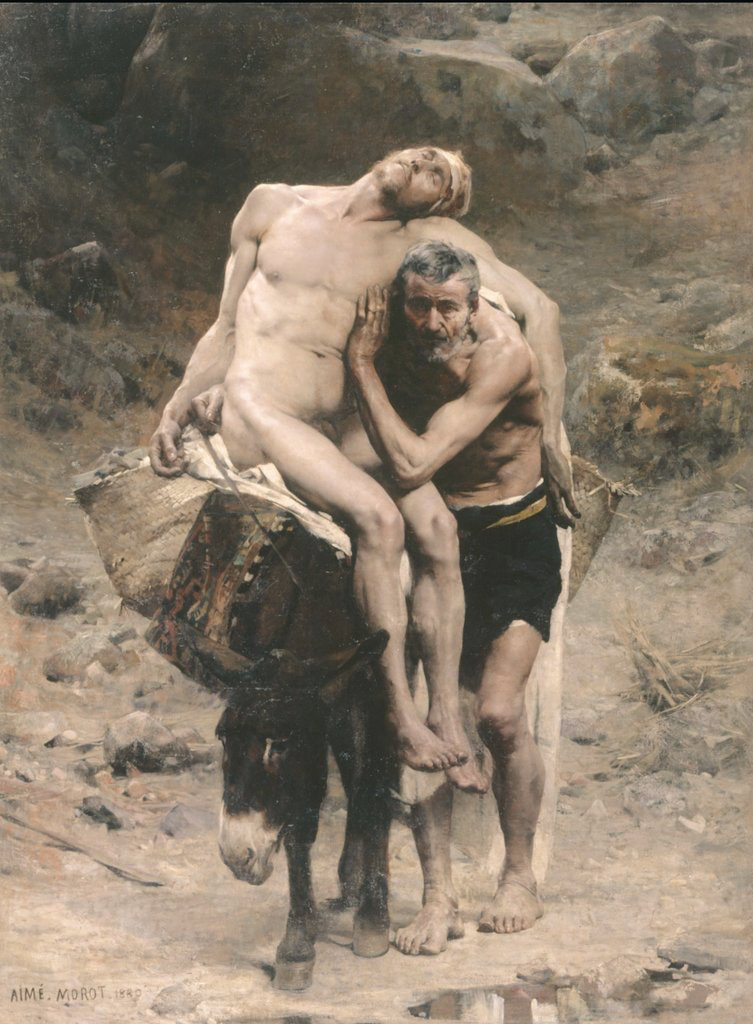 There is a nostalgia for a lost paradise. We all feel it, more or less; it connects us to original sin and to the fall. This disease torments pure souls. She heels and waves. Illness of youth if ever there was one, romantic madness, this nostalgia is at the heart of Sébastien de Courtois' novel, L'ami des beaux jours .
There is a nostalgia for a lost paradise. We all feel it, more or less; it connects us to original sin and to the fall. This disease torments pure souls. She heels and waves. Illness of youth if ever there was one, romantic madness, this nostalgia is at the heart of Sébastien de Courtois' novel, L'ami des beaux jours .
Category: Literature
The Pump by Clive Staples Lewis

"In the first place, you must get rid of that nauseating idea, the fruit of an inferiority complex manifesto and a worldly mind, that pomp, in the right circumstances, has anything in common with vanity or sufficiency. A celebrant who solemnly approaches the altar to celebrate, a princess led by her king in a noble and delicate minuet, a senior officer reviewing the honored troops during a parade, a butler in livery bringing food lavish at a Christmas banquet — all wear unusual attire and move with calculated and impeccable dignity. This does not mean that their gestures are in vain, rather docile; their gestures obey an imperative that presides over every solemnity. The modern habit of practicing ceremonies without any etiquette is no proof of humility; rather, it proves the powerless celebrant's inability to forget himself in the service, and his readiness to rush and spoil the pleasure proper to the ritual of placing beauty at the center of the world and making it accessible to him. »
Free translation by the blog author.
Claude Bruaire
Pain designates the “negative” sensation in the aggression that affects the being by the body. We use the word for localized aggression, in variable vivacity, reserving “suffering” for the test of the whole being, reached in its depth, in its personal being.
An ethics for medicine. From medical liability to moral obligation . Editions Fayard.
Poetry by Philippe MacLeod
There is no greater vertigo than your exposed face (…). It is there, at the edge of this barely half-opened abyss, that we discover how close the flesh is to the soul.
Advance in deep life , Ad Solem Editions.
Our secret, a mystery
We have our secret, which we first make a mystery to ourselves.
Marcel Jouhandeau, in Elements for an Ethics . Editions Grasset.
Antigone, rebellious and intimate (7/7. Love)
7th and last part: Love

Antigone's desire is family, she does not want to leave her brother unburied; Creon, he wants to assert himself as king and show his power. Antigone favors family ties that embody love and reveal a being. Creon establishes his power by signing an act of law which must establish his authority. The same word characterizes their action: desire. But desire does not recognize desire in the other, one might believe, especially if one is tempted to worship desire for itself, that desire dubs any desire it encounters. Between Creon and Antigone, it is the measure of the desires that counts. Face to face, Antigone and Creon will increase the measure of their desires to the adversity they encounter. But is the source of Antigone's desire still understandable today? Indeed, Antigone's desire, this desire which is based on justice, justice done and returned to the remains of her brother and to the gods, this desire takes on its full meaning, because it is communal, it is part of a city and in a family, reduced vision of the city, and in a belief, Antigone leans against the gods to challenge Creon. Antigone does not express a personal desire, she defends an eternal law, she defends her duty to say it, to claim it before any power that thinks itself above her. Since when do we no longer hear anyone standing up in the public space to claim their duty at the cost of their life? The worst ? We have become accustomed to this silence, this resignation, the transcendental laws no longer tell us much, so nothing comes to overhang and therefore correct the laws which pass in front of us and encircle us like rubbish in a stream of water. The communities that fortified the individual within a space that protected him and allowed him to grow were shattered. The individual now looks like a crazy electron who can only build himself up from gusts of wind that constantly exhaust him and confuse him and erase even the taste for the meaning to be given to his life. Social life is based on law and law alone, but in a place without geography made up of people above ground, all rights are equal and crushed in an odious shambles. Creon has the power. Antigone is the daughter of Oedipus. At a time when it is no longer a question of having, of possessing, of acquiring, Antigone weighs—since it is necessary to evaluate—very little. The methodical destruction of all metaphysics is akin to a crime against humanity. Perhaps the greatest the world has ever known. Since with one click, I can acquire everything, I only need to know my desire to satisfy it. We also understand that this individual desire that nothing protects from his appetite accepts no limits and especially not those set by others; then comes into play envy, debased, debased desire.
Continue reading “Antigone, rebellious and intimate (7/7. Love)”
Show “But times always come back…” – 2nd Foreign Infantry Regiment (1991)
Show “But times always come back…” — 2nd Foreign Infantry Regiment (1991) by Emmanuel Di Rossetti on Vimeo .
On August 31, 1991, the 2nd Foreign Infantry Regiment celebrated its 150th anniversary during an exceptional cinéscénie, the battle of El Moungar and its return from Operation Daguet, the first Gulf War. 30,000 spectators from Nîmes will attend this event which began during the day with the legionnaires dressed in authentic costumes placed in the conditions and sets of different eras, and which will continue late into the night with the show itself performed by François Gamard, Jérôme le Paulmier and Richard Bohringer 1 in front of the Costières stadium (180 meters from the stage!).
Continue reading “Show “But times always come back…” – 2nd Foreign Infantry Regiment (1991)”
Paul Bourget on France since 1789
Paul Bourget wrote:
" it's necessary to choose ; or else the people of 1789 were right and the whole ancient edifice must fall; or else they were wrong and it is their work that must be destroyed to restore France. »
Turn idea into feeling
Max Jacob to a student:
Meditation is not about having ideas, on the contrary! it consists in having one, in transforming it into feeling, into conviction. A meditation is good when it leads to a YES, pronounced by the whole body, to a cry from the heart: joy or pain! by a tear or a burst of laughter. Just try to meditate on this: God became man. Repeat this within yourself until you come to conviction. It does not matter which images appear, image of Christ or child or young man or crucified. No matter. Repeat on your knees: God became man! For how long ? It depends on your faculties. There are good ten-minute meditations and bad ones that last an hour. In short, collect yourself twice a day at least.
I'm not talking to you about prayer, about contemplation, first because I don't understand much about it, then because I don't want to make you a mystic, but only a man.
Antigone, rebellious and intimate (6/7. The vocation)

So many stories about identity! The word does not appear in Greek epic or tragedy. Identity at the time of Antigone is based on lineage and belonging to a city. Identity was impregnated with rootedness. The family and the city brought together under a virtual banner all of what the other was to know about himself during a first meeting. During antiquity, no one proclaimed his identity or promulgated it, and no one decided on his identity. It wasn't about putting on a costume. Men depended on their identity. Identity was like a charge, we had to be worthy of it. It established being and becoming. The modern era has made it an issue, because it has transformed identity into having, a sort of asset which one can dress up or discard. In its modern fantasy of believing that we can choose everything all the time, the modern era has relentlessly replaced being with having. Yet this logic, this ideology has its limits: some things cannot be acquired, among them: otherness. Living one's identity, being what one is, inhabiting one's name , allowing intimacy and therefore knowledge and deepening of one's being, these are the sine qua non conditions for an encounter with the other. The first difference between Creon and Antigone is located in this precise place, the ground on which the fight is built, Antigone preserves anchored in her this gift of the elders, of the gods, this rootedness which defines the authority to which she leans for stand up to this man, his relative, the king, who espouses the will to power and finds himself blinded by it to the point of hearing only his own voice, its echo. Continue reading “Antigone, rebellious and intimate (6/7. The vocation)”